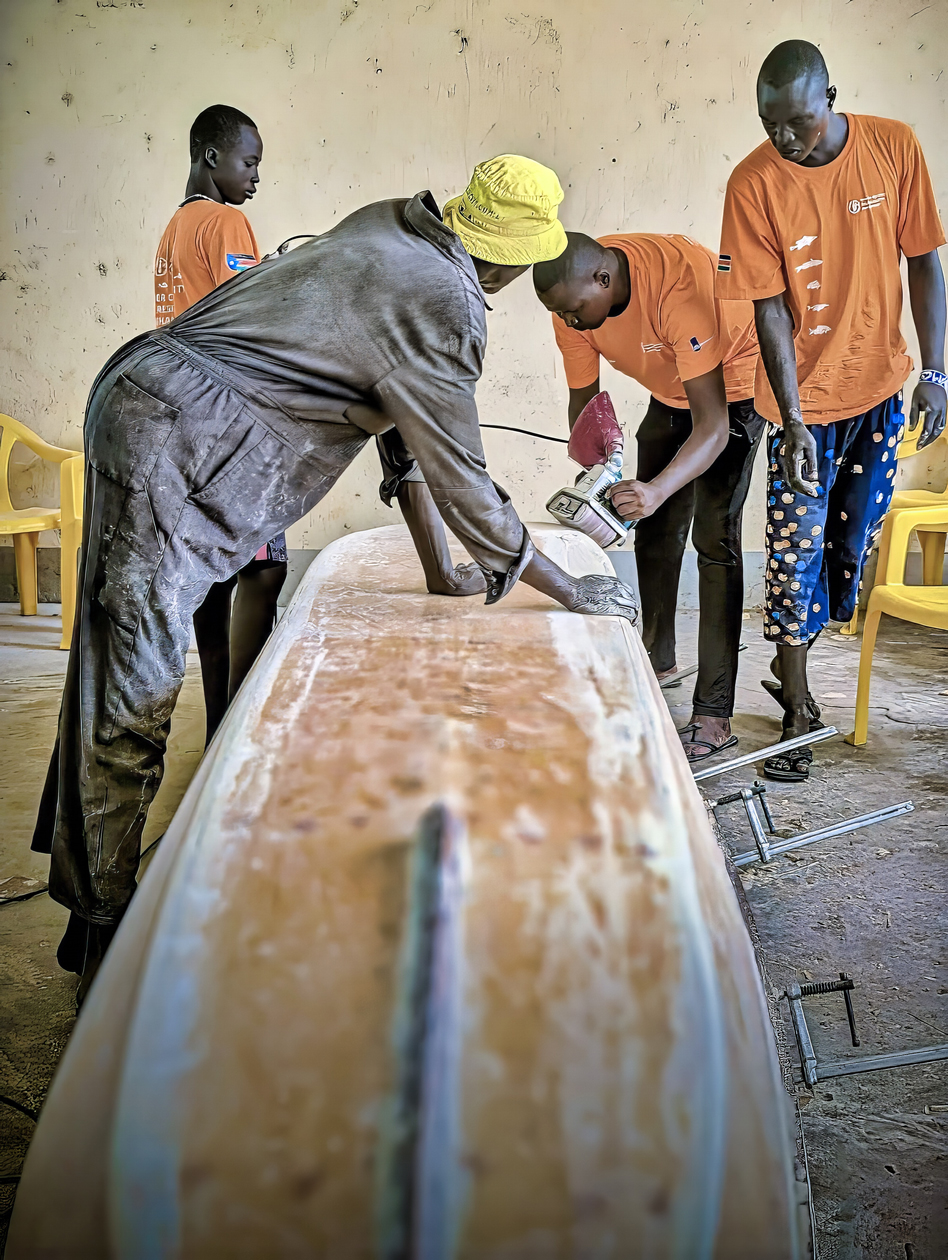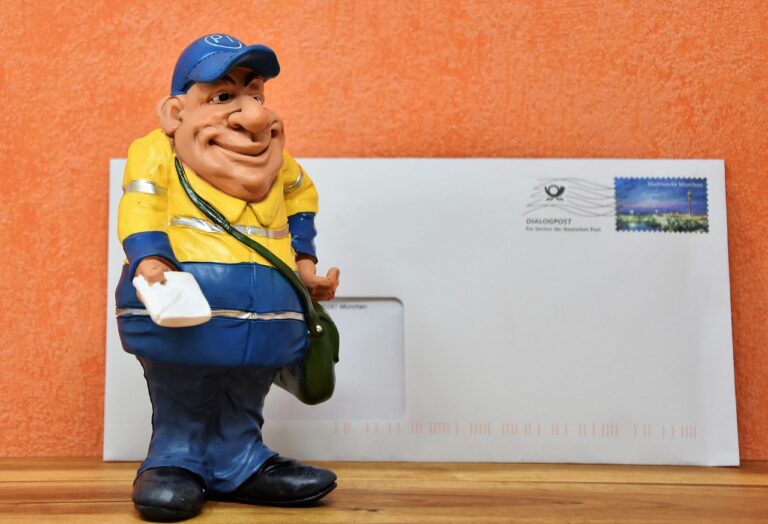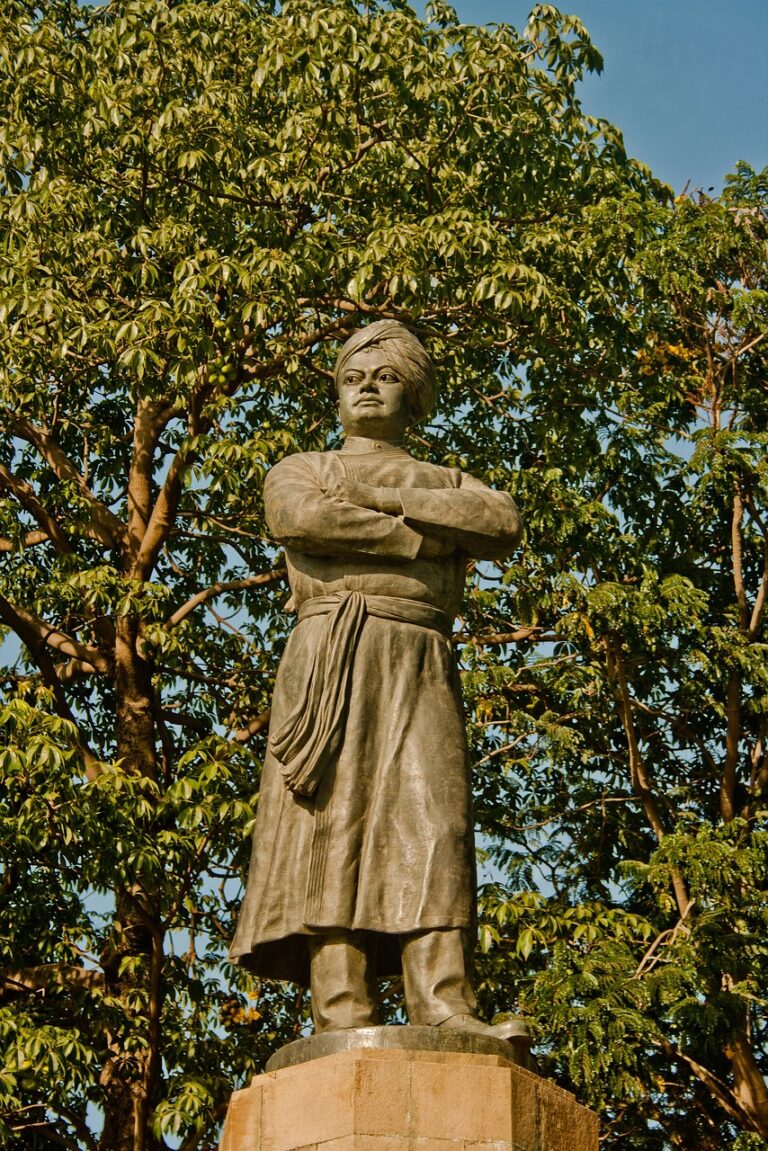
Boat builders upturn the wooden boat and sandpaper their patch of its hull as they build a canoe for fishing along the White Nile of South Sudan. ©FAO/Matt Walsh
In South Sudan, training to extend the lifespan of canoes is saving trees and making fishing safer.
Traditionally, fishing vessels in this African country are made of local, valuable hardwoods, like mahogany and teak. Though sturdy, these traditional canoes absorb water – up to the equivalent of 80 per cent of the vessel’s weight. This makes them harder to propel and steer when paddled and use more fuel when they are fitted with a motor. These boats typically only last a maximum of five years. Unsustainable deforestation due to large-scale logging for export has already made hardwoods rarer in this region.
Part of a project run by the Food and Agriculture Organization of the United Nations (FAO) is working to introduce techniques that it says will empower professional boatbuilders in Bor and Terekeka to enhance their usual design so that it lasts longer – reducing the need to cut down trees.
FAO has put local boatbuilders at the centre of the project and extended their skills. The solution starts with coating the canoes with an epoxy resin, which can extend the lifespan of the boats to 20 years or more, meaning a reduction in deforestation as the boats are replaced less frequently. It also means that cheaper wood options can be used instead of hardwoods.
As the epoxy-treated boats are lighter than the traditionally produced ones, they are more manoeuvrable in the narrow channels of the White Nile and in the dangerous conditions that fishers sometimes face.
FAO has trained the boatbuilders on how to mix the resin, the quantity to use and the safe way to handle the material.
Teaching these improved canoe-building techniques is part of the Fisher Community Resilience Enhancement Project (FICREP), funded by the Kingdom of the Netherlands, that began in South Sudan in 2020 and runs until the end of 2024.

The epoxy resin costs four times more than the more everyday polyester resin but has a longer lifespan. Until now, epoxy resin has been used in Formula One cars and on yachts, but the project has helped to set up a local supply chain to sell the product at a more reasonable cost. Together with the establishment of an epoxy resin supply chain, this puts boatbuilders in a strong position to sustain their businesses in the future. The use of epoxy resin means that locally constructed boats can compete with glass-reinforced plastic imports, keeping the domestic boat-building industry in business.
Local boatbuilders have also received business development support in selling to international organizations. “The project has given local boat builders an edge in the competitive market, while at the same time reducing the environmental impact of felling trees for their livelihoods,” said Matt Walsh, a fisheries expert at FAO.
Treating canoes with epoxy isn’t the only aspect of boat building that the FAO project is teaching. In addition to canoe building, the wider project also provides training on fish handling, processing and preservation and supplies related equipment. This tackles the problem of a lack of refrigeration and the associated food loss in having to dump unsold fish at the end of the day.
Participants have also received training on how to make the joints that hold the boat together, draughting plans and working with paper models. FAO experts have also enabled them to scale up production capacity by teaching basic maths and how to grid out sheets of wood so they can cut the same parts exactly. The training is built on their own techniques rather than displacing them.
Besides the training, FAO has also provided enough materials to enable the participants to construct 100 boats or around six each.
“There is already evidence that there is a market for the enhanced canoes. Fishers have proven willing to pay more for them and have shown interest in buying them from up to 100 kilometres away. The hope is that the effort will help to establish a homegrown industry that can compete with imports,” Walsh said.
In addition, the prospect of teaching improved boatbuilding using epoxy resin in other African countries is also on the horizon, extending the benefits of sustainability and safety across the continent.
Source: The FAO News And Media Office, Rome




